America's Iran strategy leads to a "lose-lose" scenario
(Baonghean.vn) - Although the US may not be planning to invade Iran, its belligerent tone shows that Washington prefers threats over dialogue when dealing with Tehran. According to experts, such a strategy could lead both the US and the world into a stalemate.
| US President Donald Trump announced his withdrawal from the Iran nuclear deal. Video:Reuters. |
On July 27, Australian media reported that the US was “ready” to bomb Iran’s nuclear facilities. This information was immediately denied by US Defense Secretary James Mattis, calling it “completely fictional”. However, this development is still likely to cause trouble in the context of the sudden deterioration of US-Iran relations, after Washington unilaterally withdrew in May from the historic nuclear deal with Iran, also known as the Joint Comprehensive Plan of Action (JCPOA).
The openly hostile tone of the US may be part of a completely different strategy. “Washington’s belligerent tone is an attempt to intimidate Tehran and force it into other agreements, which could include its missile program or its activities in the Middle East,” said Vladimir Sazhin, a senior research fellow at the Institute of Oriental Studies of the Russian Academy of Sciences.
US President Donald Trump has taken full credit for another historic international event – his meeting with North Korean leader Kim Jong-un – and gone so far as to claim that he was the one who actually saved the world from a potentially catastrophic conflict between Washington and Pyongyang. In fact, the thaw in relations was initiated by North Korea, which entered into talks with its southern neighbor in early 2018, while the US was still actively pursuing a “maximum pressure” strategy, and then suspended nuclear testing and even closed one of its test sites in an apparent gesture of goodwill.
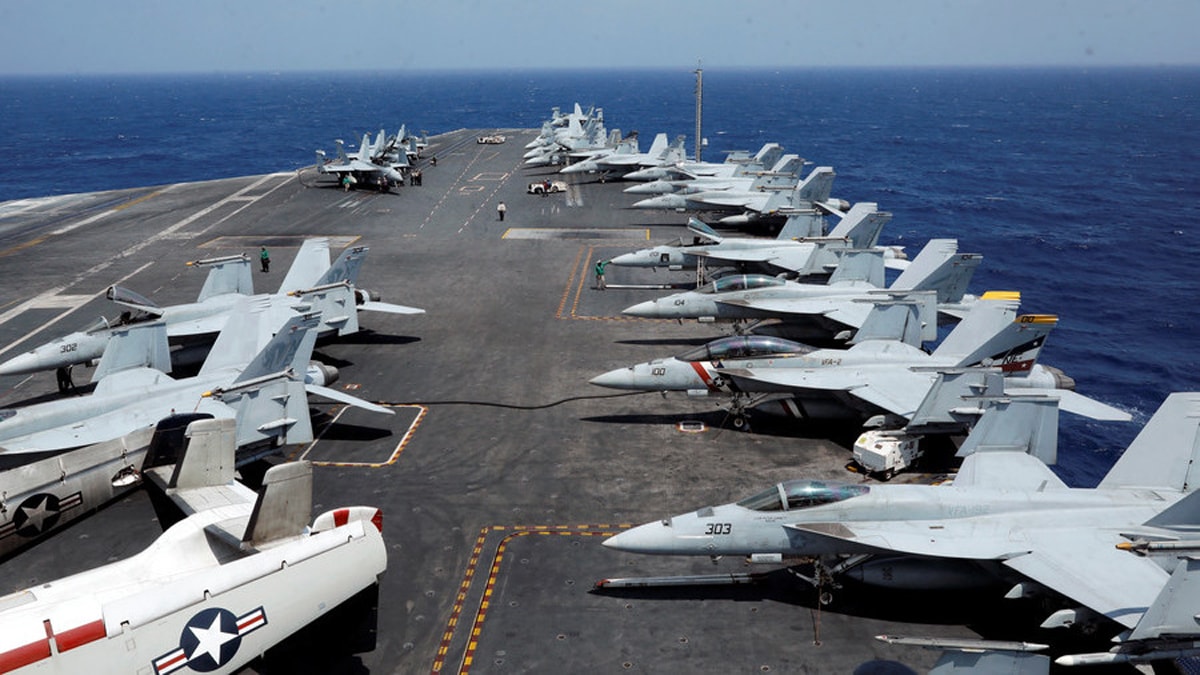 |
| A US Navy F18 fighter jet on the aircraft carrier USS Carl Vinson. Photo: Reuters |
Trump credited the meeting – which in reality produced less than he had stated his intentions – to his efforts, and Washington is clearly still optimistic that its “maximum pressure” strategy is actually working. At least now Trump appears eager to try and get such a deal a second time – but this time with America’s Middle Eastern rival, Iran.
But this strategy is inherently flawed, and Trump will be held responsible if current US policy toward Iran leads to another crisis, rather than whatever deal the US leader seems to be seeking.
COUNTER-EFFECT WIND LEVERAGE
The last major crisis over Iran’s nuclear program occurred in 2011 and 2012, when the world held its breath in anticipation of a possible attack on Iran by the United States or its allies, such as Israel. Iran, which had vehemently opposed concessions on its nuclear program, was ultimately hit with tough sanctions that helped bring the Islamic Republic to the negotiating table.
However, the situation today is completely different. It is not Iran that is causing trouble now, but the United States under the erratic Trump, unilaterally withdrawing from the historic agreement that Iran has effectively complied with since signing in 2015.
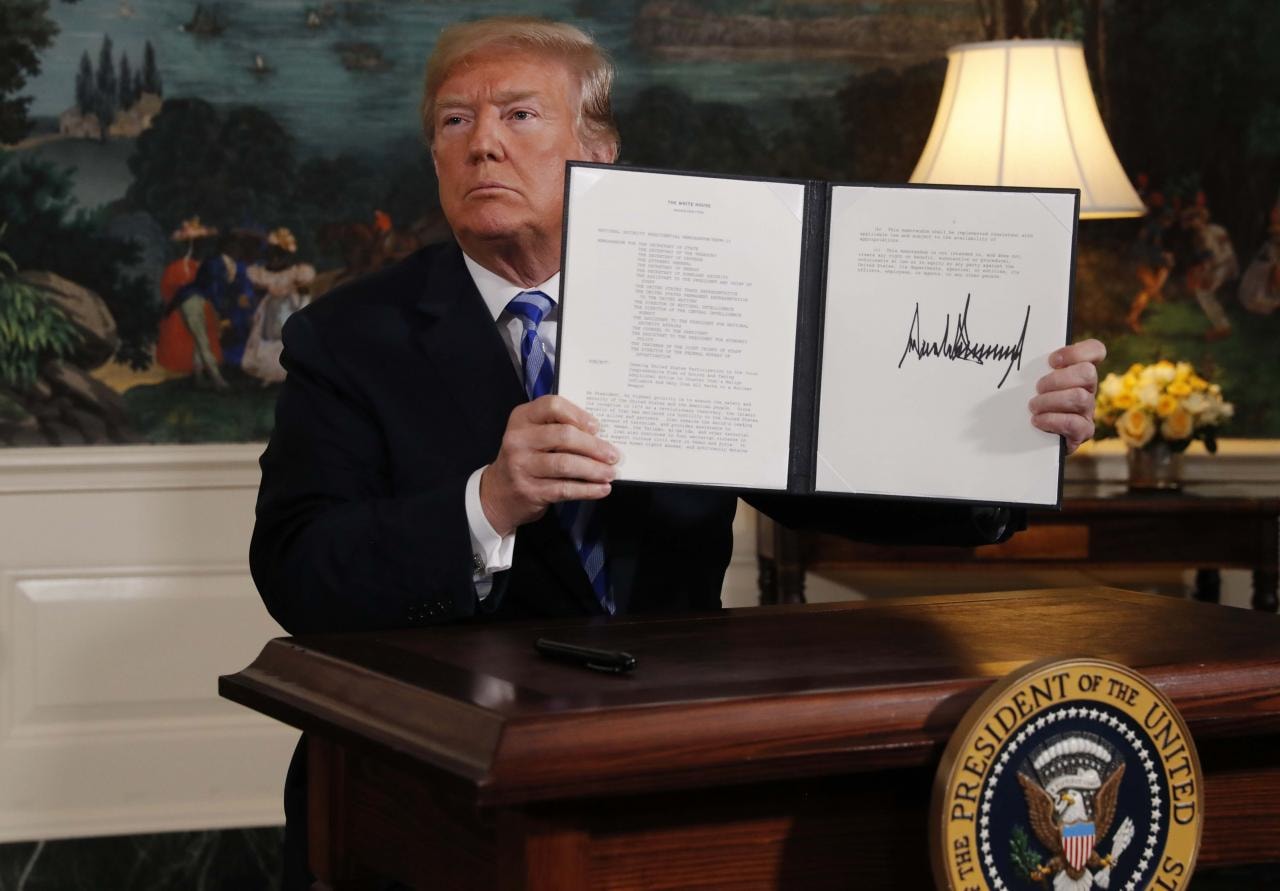 |
| US President Donald Trump announced his unilateral withdrawal from the Iran nuclear deal in May. Photo: Reuters |
“Trump has now decided to withdraw from the agreement entirely on his own,” Sazhin said, explaining that “even some parts of the US ruling circles do not support this decision.”
America’s European allies, who supported the imposition of sanctions on Iran six years ago, have also been fiercely critical of the US actions and have pledged to maintain the deal. Sazhin also asserted that Trump is unlikely to find any support for his “maximum pressure” policy in the EU, let alone Southeast Asian countries that are currently developing economic ties with Tehran.
Meanwhile,Vladimir Batyuk- a military analyst and senior research fellow at the Institute for American and Canadian Studies said that the US is probably in its weakest position since 1979 in terms of pressuring Iran, while Tehran is now much stronger because it has received, if not public support, then indirect support from many international actors on the nuclear deal. He also asserted that Trump's unprecedented hostile tone toward North Korea, followed by rapid changes in tone and praise for Kim Jong-un, has led to a situation in which any new bluster can be seen as empty threats.
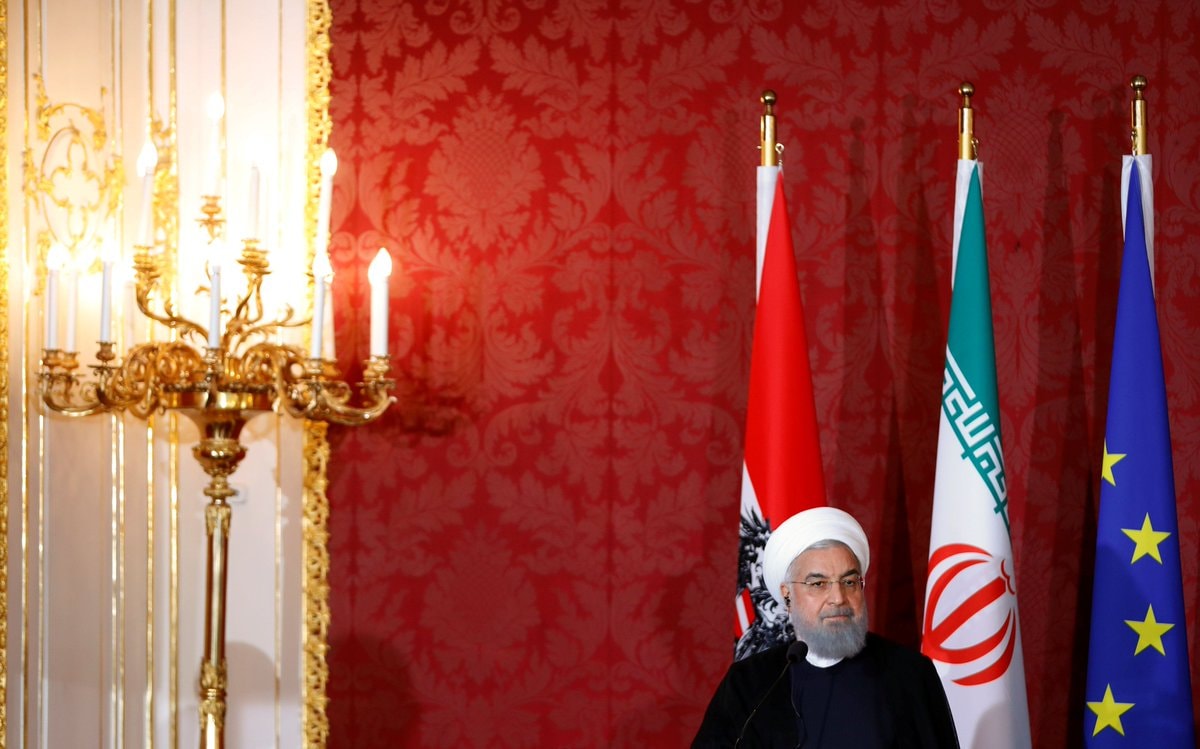 |
| Iranian President Hassan Rouhani has warned the US that war with Iran is the "root of all wars". Photo: Twitter |
Batyuk's views were supported byKonstantin Blohkin, an analyst at the Center for Security Studies of the Russian Academy of Sciences, also asserted that the US is unlikely to bring anyone to the negotiating table through intimidation, as its threats are now considered “non-existent”.
“Mr. Trump has threatened North Korea but has not taken any action to carry out those threats,”Blohkin reiterated, adding that “no one is taking his words seriously right now.” In such a situation, Trump’s moves are nothing more than “propaganda and PR stunts with a warlike tone,” Sazhin asserted, adding that the US is unlikely to make Iran capitulate on issues such as its missile program or its Middle East policies.
PUNISHMENT - MORE PROS THAN HARMS?
Bellicose rhetoric isn’t the only weapon in Trump’s arsenal; he’s also preparing to use one of Washington’s favorite policy tools—sanctions. Earlier this month, the US pledged to increase pressure on Iran’s energy sector. Washington plans to hurt Tehran by “reducing its crude oil sales to zero” with sanctions that take effect in November.
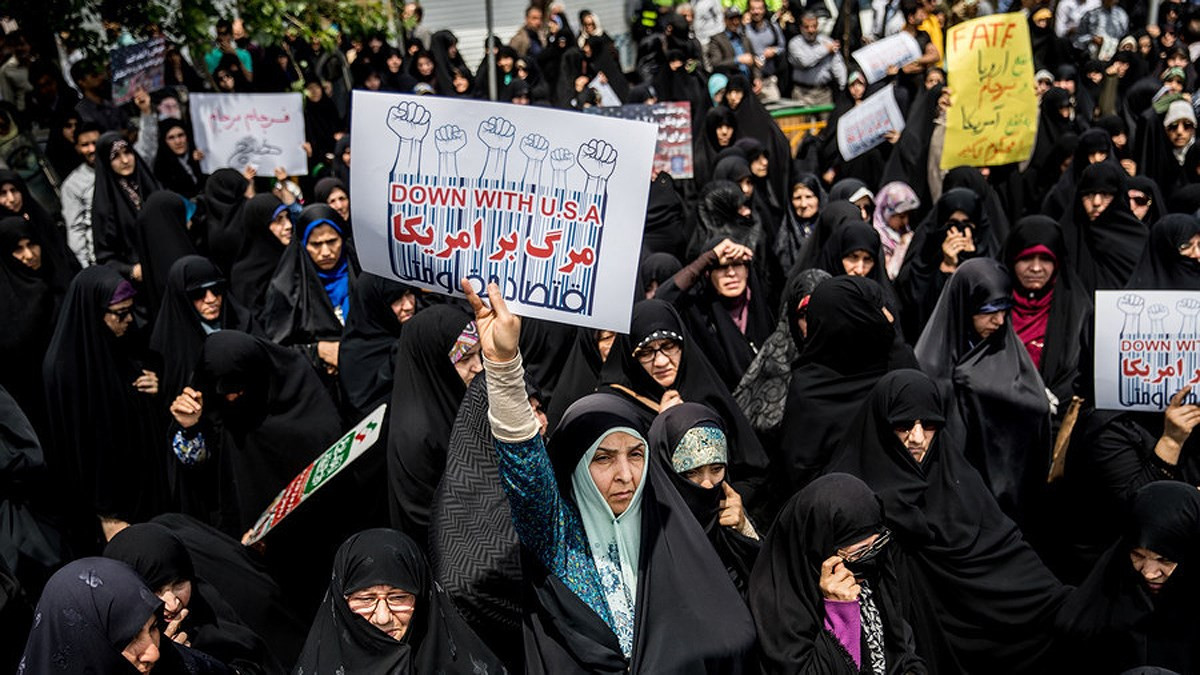 |
| Iranian women protest against Trump's withdrawal from the historic nuclear deal in Tehran on May 11. Photo: Reuters |
While the move is unlikely to impact some of Iran’s trading partners, such as Southeast Asian countries, Russia or even Türkiye, which recently said it would not comply with US oil sanctions on Iran, it could still force European companies, which continue to have close economic ties with the US despite the ongoing trade dispute, to abandon trade with the Islamic Republic, fearing secondary sanctions from Washington.
Sanctions imposed in 2012 crippled the Iranian economy and, according to Sazhin, were one of the factors that brought “moderate” President Hassan Rouhani to power. Now, “Trump hopes that sanctions and new economic hardships will cause the Iranian people to rise up and overthrow the government and the entire political system,” the analyst said, adding that the US president is “once again wrong” because he “does not have the slightest understanding” of the current situation in Iran.
An economic downturn could indeed weaken Mr Rouhani’s government but is unlikely to lead to any systemic change. Instead, it would strengthen the Iranian president’s opponents – hard-line, deeply anti-American Iranians – and would make any potential negotiations impossible.
 |
| Iran conducts military exercises in the Strait of Hormuz. Photo: AFP |
“Hardliners coming to power could significantly worsen relations between Iran and the United States, and the West in general,” Sazhin warned. He also said they could increase Iran’s presence in countries like Syria, Yemen or Lebanon, provoking further tensions that could lead to a major crisis in the region and become a source of concern for US allies there – Israel and Saudi Arabia.
As a result, Trump’s reckless decisions could actually put the region or even the entire world on the brink of a major conflict. Rouhani has actually warned the US that a military confrontation with Iran would be “the root of all wars.”
THE MILITARY CAMPAIGN WAS A "DISASTER"
The Washington administration may indeed see Iran as a suitable target for another US military adventure. After all, the Islamic Republic does not possess any nuclear weapons (unlike North Korea) and therefore cannot retaliate in a way that would theoretically deter the US from attacking it. In practice, however, such calculations may still be wrong.
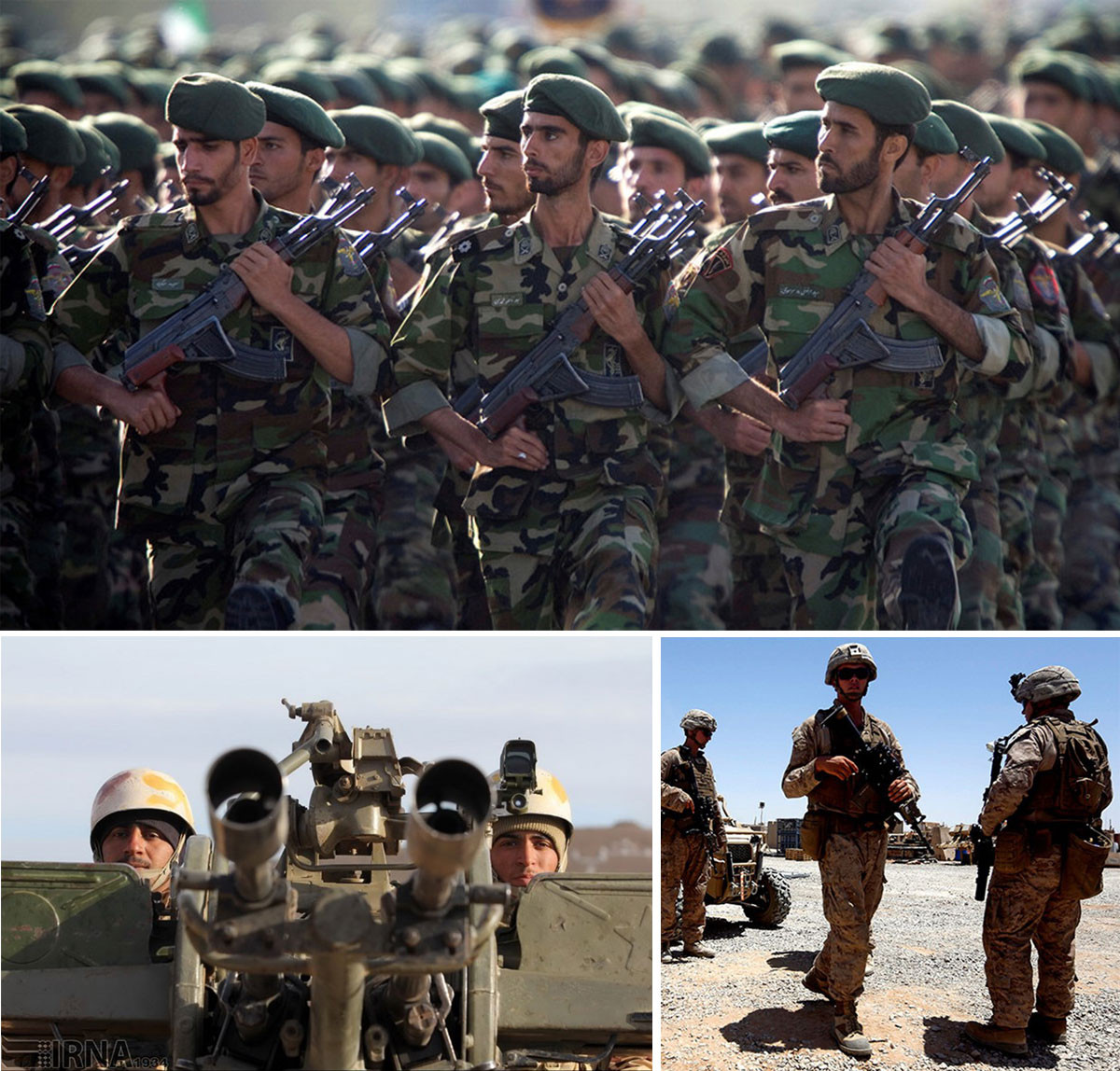 |
| Iranian army. Photo: Reuters |
“The total strength of the Iranian armed forces, including the IRGC, could be as high as 600,000-900,000,” Sazhin said, adding that the IRGC actually controls about 25 percent of Iran’s economy and has significant resources. Iran also has militias, made up of civilians who often train under the IRGC’s control and whose numbers are estimated to be in the “millions.”
“Any ground operation against Iran would be pure madness,” Sazhin warned, adding that any airstrikes or missile strikes “would not solve the problem” but would only further inflame the situation by rallying the country around the government – and perhaps the most hardline part of it.
In addition, Iran now possesses missiles with a range of up to 2,000 km, enough to attack US bases in the region as well as reach Israel. After all, Iran does have the ability to retaliate against any US attack.
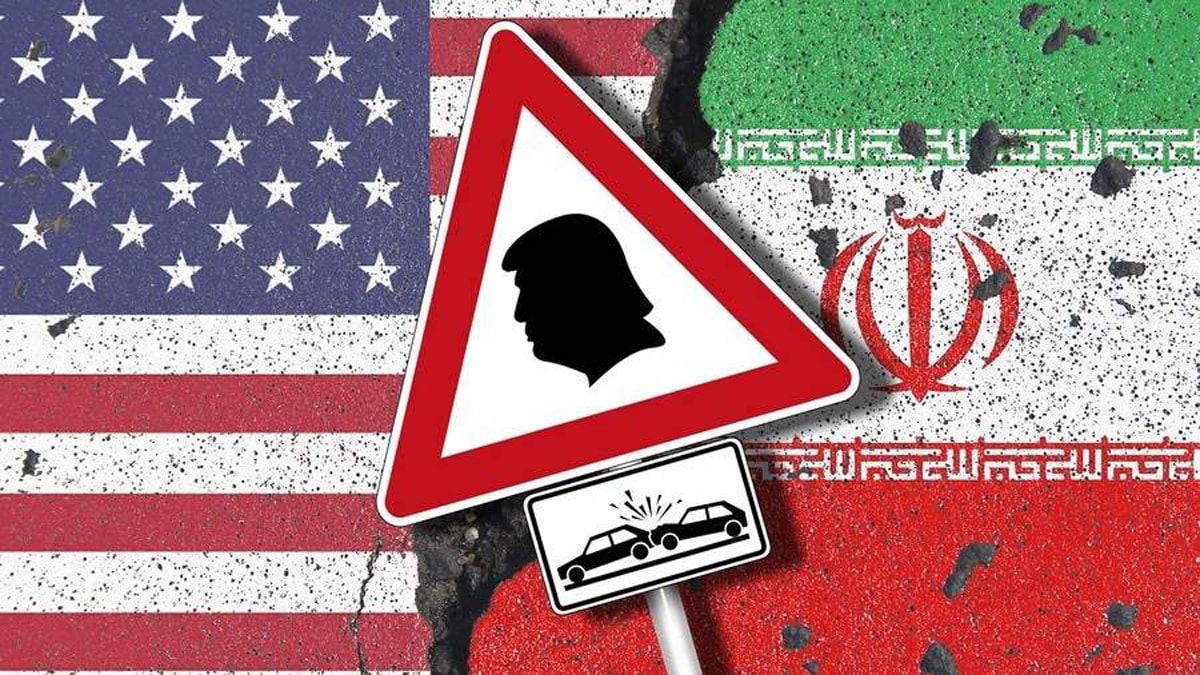 |
| The US's anti-Iran strategy could lead to a lose-lose scenario for all sides. Illustrative photo Reuters |

